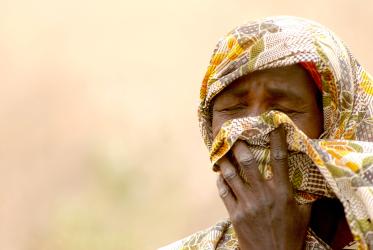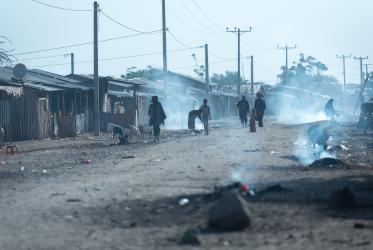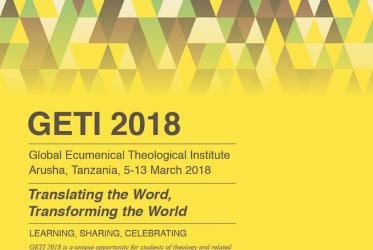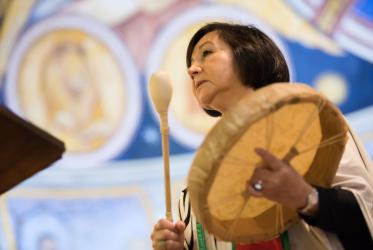Displaying 1 - 20 of 30
WCC appeals for immediate ceasefire in Sudan
17 April 2023
Theological education in Africa promotes social transformation
03 November 2022
World mourns loss of Archbishop Desmond Tutu
30 December 2021
Applications open for WCC Eco-School
10 May 2017
Faith communities explore concrete climate action at COP22
10 November 2016
Advocates urge transition to low-carbon economy, clean energy
09 November 2016
















